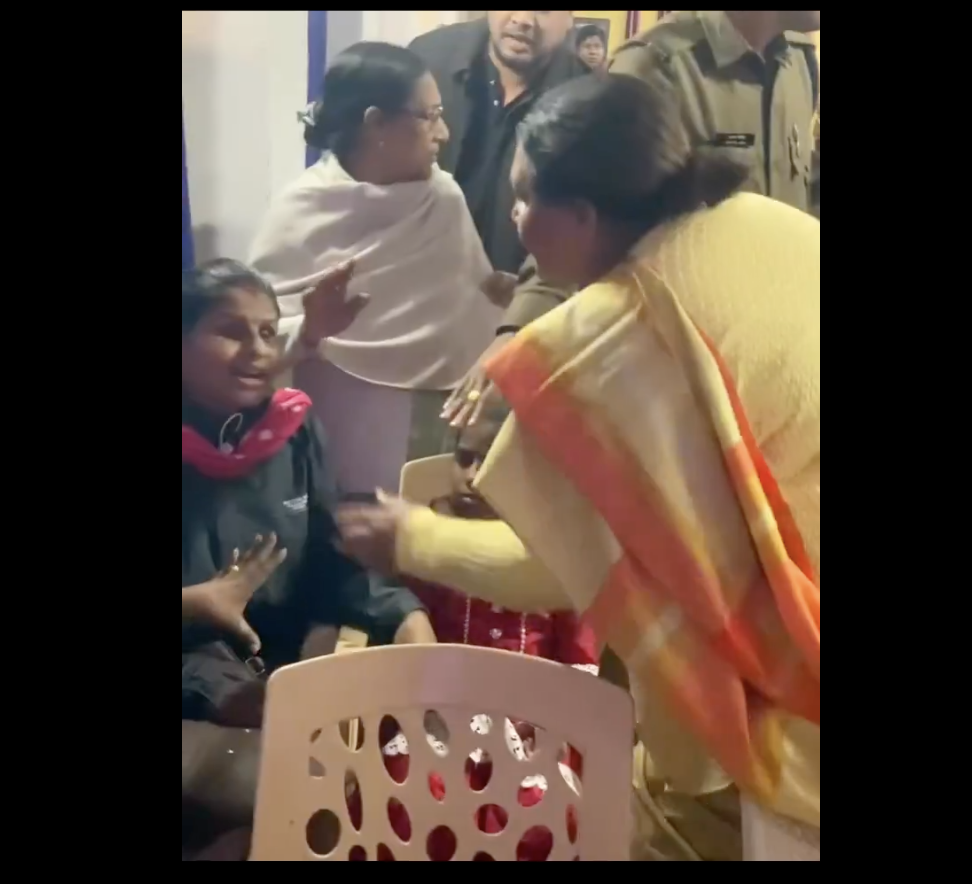
On Thursday afternoon, dozens of journalists gathered at the Press Club of India in Delhi to protest the surveillance of journalists and activists with the Israeli spyware Pegasus.
Among those in attendance were veteran journalists Mrinal Pande, Umakant Lakhera, Paranjoy Guha Thakurta, MK Venu, Santosh Bharti, Ram Sharan Joshi, Prem Shankar Jha, as also Editors Guild of India general secretary Sanjay Kapoor, Working News Cameraman Association chief SN Sinha, Indian Women’s Press Corps president Vineeta Pandey, Press Association chief Jaishankar Gupta, and International Federation of Journalists general secretary in India Sabina Inderjit.
Maintaining that snooping on citizens “endangers Indian sovereignty”, the Press Club and fellow journalist bodies demanded an inquiry. “We believe that such acts of snooping on citizens undermine democracy. It is, therefore, incumbent on the government to put an end to obfuscation and come clean on the use of Pegasus spyware,” they said in a statement. “We demand a Supreme Court monitored inquiry into the acts of surveillance. Media organisations will explore constitutional options for the safeguard of democracy and freedom of press.”
The Indian citizens who feature in the list of potential targets of Pegasus include at least 40 journalists, politicians Rahul Gandhi, Ashwini Vaishnaw and Prahlad Singh Patel, and even virologist Gagandeep Kang.
Addressing the assembled journalists, Lakhera, president of the Press Club, denounced the Pegasus snooping as “a direct attack on democracy”. “Democracy rests on four pillars, all of which are now in danger,” he added.
Speaking to Newslaundry at the protest, Thakurta argued that the snooping affected more than individual privacy. “It’s about freedom of expression,” he explained, “and above all it is about the future of democracy.”
Referring to home minister Amit Shah’s dismissal of the snooping revelations as “attempts to malign India’s democracy” by “disruptors” and “obstructors”, Thakurta said, “There are 45 countries where phones have been tapped, so to look at it as if it’s happened as a conspiracy against India, I think, is stretching it a little too far.”
Sanjay Kapoor, the Editors Guild general secretary, said, “People who don’t agree with the state are being suppressed to all effects. Where is it all going? We need to all worry about it.”
Ram Sharan Joshi, a seasoned independent journalist, said while surveillance of journalists wasn’t new in India, the involvement of a foreign company in the Pegasus scandal meant that it was the Narendra Modi government’s “responsibility to clear all our doubts”. “If it is a misgiving, then say it, issue a statement. But neither have you accepted nor have you rejected it,” he added, referring to the government.
MK Venu, a founding editor of the Wire who features in the list of potential Pegasus targets, called himself a “happy victim”. It was as a “badge of honour” to be a “victim for speaking the truth”, he explained. “We are not a proud victim. But it is our basic desire and obligation to tell the truth. It’s not bad to be victimised to telling the truth.”
Venu argued that India was under an “undeclared emergency”. “At least during the emergency, Indira Gandhi didn’t have any pretence,” he explained. “Today’s government maintains that this is a democracy while at the same time crushing dissent in practice.”
‘Condemn tax raids on Dainik Bhaskar, Bharat Samachar’
The journalists also expressed concern over the increasing use of the sedition law to curb political dissent and press freedom, and condemned the Income Tax department’s raids on the Hindi daily Dainik Bhaskar and the TV news channel Bharat Samachar on Thursday.
Mrinal Pande, former editor of Hindustan, said she was not “surprised” by the raids as the incumbent government’s top leaders were “highly insecure people”.
In January 2021, Pande and five fellow journalists were booked for sedition, criminal conspiracy, and promoting enmity for reporting and tweeting about the death of a protester during the Republic Day tractor rally organised by farmers protesting against the Modi government’s new farm laws.
Referring to her own case, Pande emphasised that raids on media organisations and booking of journalists for sedition reflected the government’s “lack of confidence and sense of insecurity”.
This story first appeared on newslaundry.com






